Doc falls into a ten-minute coma, circumvents some forgettable bacteria and introduces the Daleks to the perils of molten ice.
Harry clambers into clam city and everyone’s a war criminal!
Podcast: Play in new window | Embed
The Fourth Doctor and his companions Sarah Jane Smith and Harry Sullivan are intercepted mid-Transmat by the Time Lords, sent back in time and plonked on an active battlefield on historic Skaro to perform one last wholly immoral mission, namely, to destroy the Daleks before they ever get a chance to reign terror upon the universe.
Never mind that changing history to such a degree would undoubtedly cause ripples that rewrite and/or shatter all of space and time, something bigger is at stake here: the Doctor’s personal ethics.
Is killing the Daleks in their crib morally defensible? Why is Davros designing the Dalek tanks in the first place? Weren’t the Thal the good guys? And whatever happened to the Mutos? This legendary Classic Who serial will answer some of those questions.
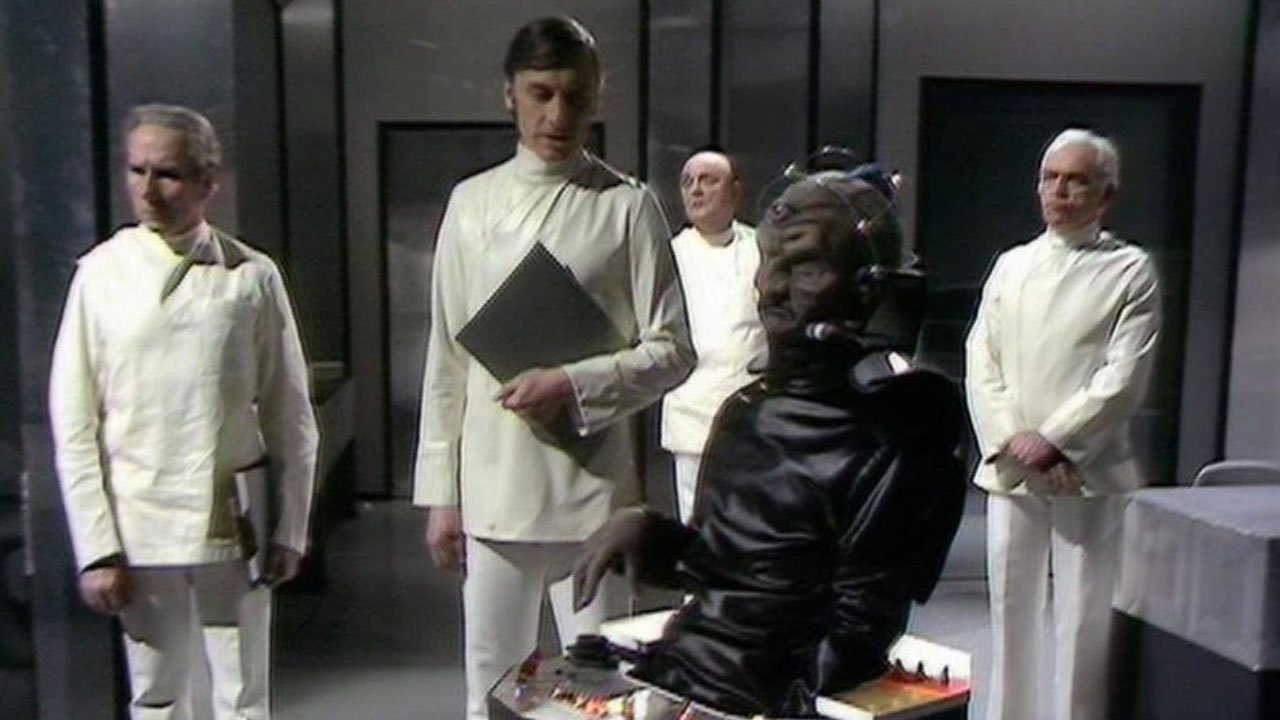

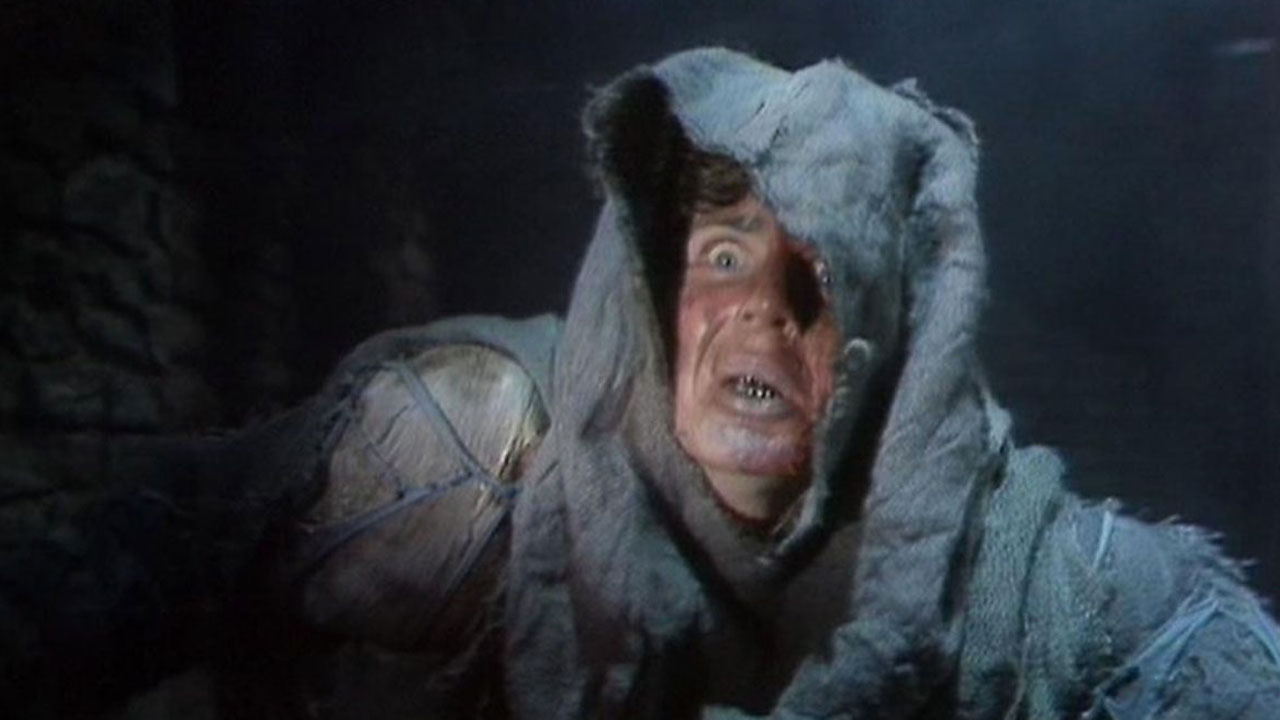













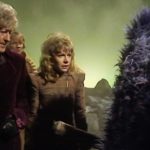
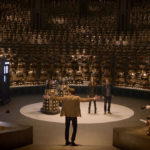
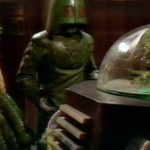







Genesis of the Daleks is the only Tom Baker serial I enjoy over and over.
I love how we get to see how the Daleks were created & who by – Davros. Michael Wisher as Davros is brilliant and my only favourite portrayal of the mad scientist.
I especially love The Doctor’s speech –
“if someone who knew the future pointed out a child to you and told you that that child would grow up totally evil, to be a ruthless dictator who would destroy millions of lives, could you then kill that child?”
“Do I have the right? Simply touch one wire against the other and that’s it. The Daleks cease to exist. Hundreds of millions of people, thousands of generations can live without fear, in peace, and never even know the word Dalek”
“But if I kill, wipe out a whole intelligent lifeform, then I become like them. I’d be no better than the Daleks”
I give the serial 10/10!
Outgoing Producer Barry Letts suggested writer Terry Nation detail the Daleks’ origins after pointing out his new script was similar to his last two Dalek stories. The resulting story painted both Daleks and their genetic ancestors, Kaleds, as Nazis. Kaleds felt a need to maintain racial purity; goose stepped while saluting; and Security Coommander Nyder, played by actor Peter Miles, wore an iron cross with his black, Gestapoesque uniform in the first two episodes. The first episode concluded as Dalek creator Davros called his initial Dalek weapons test, “a moment that will live in history,” referring to American President Franklin Roosevelt’s calling the Japanese attack on Pearl Harbor, “a day that will live in infamy.”
As the story began, soldiers in a misty war zone strung with barbed wire and littered with gas masked bodies were machine gunned, demonstrating the prevalence of violence and death on the war torn planet Skaro. Kaleds carried machine guns; rifles; or pistols. Davros, though, ordered Daleks to exterminate anyone he wanted killed using laser beams they had never had before. His henchman, Nyder, carried a kosh and attacked the new Doctor, Tom Baker.
Davros, brilliantly portrayed by actor Michael Wisher, is the greatest contribution to this story and Dalek mythology. He sat, moving on a Dalek base speaking in a mechanical fashion reminiscent of his creations. He was also insane, committed to seeing Daleks survive and becoming the dominant creature in the Universe, thereby achieving peace. He removed their conscience and learned from the Doctor about their future failures so they would never lose a battle. Davros’ willingness to release a deadly, microscopic organism that would kill everything else contrasted with the Doctor’s hesitation to wipe out embryonic Daleks. After Daleks exterminated the Thals and the elite scientists who opposed Davros’ vision, their survival instinct and lack of pity prevented them from remaining subservient to their creator.
Performances carried this well paced, tightly written morality tale which pitted the Doctor against Davros while giving Sarah Jane and Harry things to do. It’s Terry Nation’s best contribution to DOCTOR WHO since ‘The Daleks’ and a brilliant classic.
Seeing the actual birth of the Daleks is a simple but brilliant twist on the traditional Dalek runaround. We have former producer Barry Letts to thank for this. Dissatisfied with Terry Nation’s initial submission, Letts instead suggested an origin story – and an inspired Nation rose to the challenge. What he crafts is definitely his best Dalek script since “The Daleks’ Master Plan” if not his best Dalek script period.
If inventing the Daleks in 1963 was genius, then what word is left to describe Davros? Not only is this Mekon-on-heroin a clever device to bridge the Kaleds and their anagrammatic counterparts but, as portrayed by Michael Wisher, he is also an effortless contender for greatest villain in Doctor Who history.
If I have one gripe, though, I think this story could work with or without Harry. In Episode 6 the scene where the Doctor is debating whether to destroy the Daleks or not was clearly written for all three members of the main cast, but Harry gets nothing in. Unfortunately at this point he’s a bit redundant and was why his stay in the TARDIS was short.
Overall, what do I think of Genesis of the Daleks? Well, what can I say? This is perfection. Absolute perfection. This is purely top shelf Doctor Who. A Nation on fire… an assured captaincy by David Maloney… Genesis is the quintessence of Who: frightening, fantastic, unforgettable. This story has definitely earned my first 5.0/5.
Episode One:
What the hell is that Timelord wearing? Doesn’t he realise how ridiculous he looks?
You know what works well with army camouflage? Red and yellow striped gas masks.
Episode Two:
Harry & the Doctor look nonplussed with the Dalek incubator: the bubblewrap Nova worm (with the udders) set the grossout bar too high.
Thals are super mean. Never rooting for Thals again…
Episode Three:
…Kaled politicians are super nice. These guys for the win please.
Episode Four:
‘Fire’ and ‘Destruct’ buttons side-by-side? Which idiot designed this console! “Opps, butterfingers” – KABOOM!
Episode Five:
Awesome speech 1) Davros and his hypothetical virus. This guy is a cloud-cuckoo fruitcake.
Episode Six:
Awesome speech 2) “Do I have the right”? Best dialogue in Who history?
Awesome speech 3) “WE WILL TAKE OUR RIGHTFUL PLACE AS THE SUPREME BEINGS OF THE UNIVERSE!” I have this speech on an apron.
Comment: Big Finish adventure ‘I,Davros’ is a fantastic prequel to ‘Genesis’. Who Back When audio review please!
Summary: If ‘Death to the Daleks’ was the glass ceiling of the Kaled dome, ‘Genesis’ was the Thal rocket that broke it. Had Doctor Who ended with the Sixth Doctor, ‘Genesis’ would be the best Dalek and Doctor Who story ever (as it stands, it is merely the second best Dalek story and 14th best Doctor Who story…).
Rating: 4.9/5 mutant killer clams chomping on a crying Muto.
Way back when we were kids and Cousin Mike (Hi, Mike) introduced me to Doctor Who, Genesis of the Daleks was my first serial. I was immediately hooked. From then on, whether it was an earlier serial or a later one, I always viewed the Daleks with this origin story in mind.
The mysterious Time Lord who “recruits” the Doctor to destroy the Daleks is a hint at what interesting allies/foes the Time Lords could have been for the series, though it never really pays off.
The Nazi overtones are clear and well-done. Although Davros would go on to be way overused in the series, in Genesis he is a very compelling character.
Harry doesn’t get to do much, but Sarah’s escape with the mutants is heroic. I am sad the giant clam never appeared again in the series. That’s an opportunity for you, Big Finish.
And, of course, the Doctor’s agonized “Do I have that right?” speech when preparing to destroy the Daleks rivals his homo sapiens speech in “Ark in Space” for sheer Tom Baker gloriousness. Unlike Pertwee’s disgust at the Brigadier burying the Silurians, the fourth Doctor runs right up to the genocide line…but then because he is the Doctor, he backs down. One wonders if a post Time War Doctor would have done the same.
Although even as a kid I sensed that six parts is perhaps a bit too long for Doctor Who, this serial is a classic for good reason. I give it 4.0.
Planet destroyed by war? Deadly plant and animal life? Mutations caused by radiation? Daleks? Was this by any chance written by Terry Nation?
Early on we meet the Kaleds, who bang on about not wasting ammunition and then open fire with automatic weapons – and still fail to hit the Doctor and Harry. Davros programs the Daleks to consider themselves the superior race in the universe, forgetting that this makes him inferior and therefore a candidate for extermination. Bit of an oversight there.
The regulars are on top form, with Baker clearly comfortable in his role as the Doctor. Both companions get plenty to do – I love that Harry gets to save the Doctor’s life when he steps on a mine, despite being the butt of jokes in other stories, and that Sarah leads an escape attempt. Doctor Who works best when the companions are active participants rather than just someone who needs saving. As for the supporting cast, Peter Miles steals the show with a flawless performance as Nyder. Michael Wisher is also by far the best Davros, managing to sound sinister even when speaking quietly, whereas later actors tend to shout and rant.
Overall, if I was going to introduce someone to Classic Who, this is the story I would start with. It shows what can be done if you get a good script, a fantastic cast and a classic villain. 5/5
Because I slammed recent two episodes, I feel impelled to sound in on a classic. This is the single best story in Classic Who, and it’s not even close. While some achieve greatness in script, sets, costumes, action, or other areas, this turns everything it touches to gold.
The Genesis of the Daleks:
• Brings in the Time Lords
• Reboots the Daleks with no tired old tropes
• Introduces arch-villain Davros
• Imagines a huge world and pulls it off with great sets
• Talks politics, but never loses the story
• Spans SIX EPISODES with nary a wasted line
• And to cap it all off, Tom Baker gives the best monologue in Who
I give this an unqualified FIVE POINT ZERO. Absolute Masterpiece.
AARRRGGHHHH! I forgot to get my review in!!!!
Oh well, more space here means less editing. Here’s one slightly longer than usual…
It’s hard to retcon an entire baseline story into such a large well-known arc. It makes one wonder how this was pulled off so successfully. Genesis is an immersive story that explains everything from why the Daleks were ensconsed in their city to why the Tharls lived in the wild. One could even deduce why over time he Daleks were forced to rely on static electricty. The only thing it doesn’t get around to is the wooden, metal stone chamelions that end up all over the place, but that’s totally forgivable.
Davros is so different from anything else we’ve seen in the series so far that he steals every scene he is in on looks alone. He’s fascinating and intimidating. He’s charming and vile. We see why he came to be so powerful. (For more on that, see Big Finish’s, “I, Davros” series.”
The sets are great but the visuals as a whole are quite dark. One might wish they took some artistic liberty with the brightness. The costuming, sound and direction are all above average, with the exception of some truly pantomime death scenes. The script is rather tight with some great character moments, and the pacing is ingeniously kept moving through all the character introductions by having the doctor passed as prisioner from one department to the next.
The stakes only get raised when the doctor tells all the future’s secrets, but in the end things end up exactly where they need to be, fitting perfectly into all that has come before.
I hope everyone enjoys this story as much as I do, because it’s without a doubt one of the most referenced stories in all of Dr who lore. Genesis gets a, “no wonder we can’t win the war, you men can’t hit a squirrel climbing up the side of a tree, let alone a person up a rocket” 4.7
One more thing…
Anyone except me find it a little weird that the doctor refuses to touch the wires that kill all daleks ever, then a dalek drives over them and (presumably) kills every dalek ever…. but then they’re still around?
Terry Nation’s best script since “The Daleks” with generally good production and some excellent acting. As a result this is good stuff. On the other hand, Nation’s tendency to drag things out is clear. The wandering back and forth between domes, the business with the rocket and the radiation. The escape-capture-escape tropes played out in both the Thal Dome and the Bunder. All these drag things out. The edited audio record version covers the plot without missing anything important! That suggest there is dead air here!
The Doctor’s moral dilemma is not that killing the Daleks would be “evil”, but that changing the future would be “evil”. The whole butterfly-effect says that stopping the Daleks at birth would change all history! When the Doctor realises that the Daleks are already up-and-running, and that he can no longer kill all the Daleks, he is happy to delay them.
Wisher and Miles are great, but there are a couple of BBC thespian performances, and the Daleks are largely reduced to being lackeys (at least until they shoot Davros). I understand that Davros is a better spokesman for the Daleks so characters can have moral debates, but when they were on their own they were much more devious (if their plans are often bonkers).
To answer Peter’s question: the Daleks are not destroyed by blowing up the incubator unit or the entrance to the bunker, but are buried in the bunker (by implication they will take a 1,000 years to dig themselves out), and they activate the factory (within the bunker) that is going to make Daleks, including the organic bit, just before shooting Davros, so the number of Daleks is increasing, but their access to resources is limited, delaying them. If the “Kaleds” are an elite sub-group of the more general Dal population then the city seen in “The Daleks” isn’t the one destroyed here, so maybe the Daleks dig up into the city that appears in “The Daleks”?
The Mutos: They are described as the “genetically wounded” and so come from both sides of the war. In “The Daleks” it is indicated that both the Dals and the Thals have gone through a process of wild mutation. So maybe the mutos become the creatures in the “Lake of Mutants” that they pass by on the way to the mountains.
Overall very good, but not flawless, so 4.5 from me.
Dude, excellent observation about the dilemma. I sort of figured that but you managed to put it into words perfectly.
As to you other point, I always felt that this was time working out as it always should have….that the daleks being buried is what leads them to be isolated in that city and reliant on static electricity when hartnell shows up. Had this not happened, the daleks would have been even stronger.
I always felt that city was built on top of the kaled dome. That even nicely dovetails into the major plot point discussed in the Astecs. That time cant be rewritten (or at least not fixed points in time).
Truly an epic serial, as it sparks discussions far beyond itself every time its brought up.
I think it was a shame that this story did not have as yet a black supreme Dalek or even a golden emperor Dalek in, Davros works well in this story but he in my view should have been dead permanently at the end and never see back in Destinyor the other later classic Dalek stories he was really taking the centre stage and te Daleks were becoming nothing more than foot soldiers in millions and billions of ways. In the 60s Dalek serials they were lead by a supreme Dalek or even lead by an emperor Dalek a much better hierarchy structure in my view an din millions and billions of ways in comparison to Davros the Dalek creator.